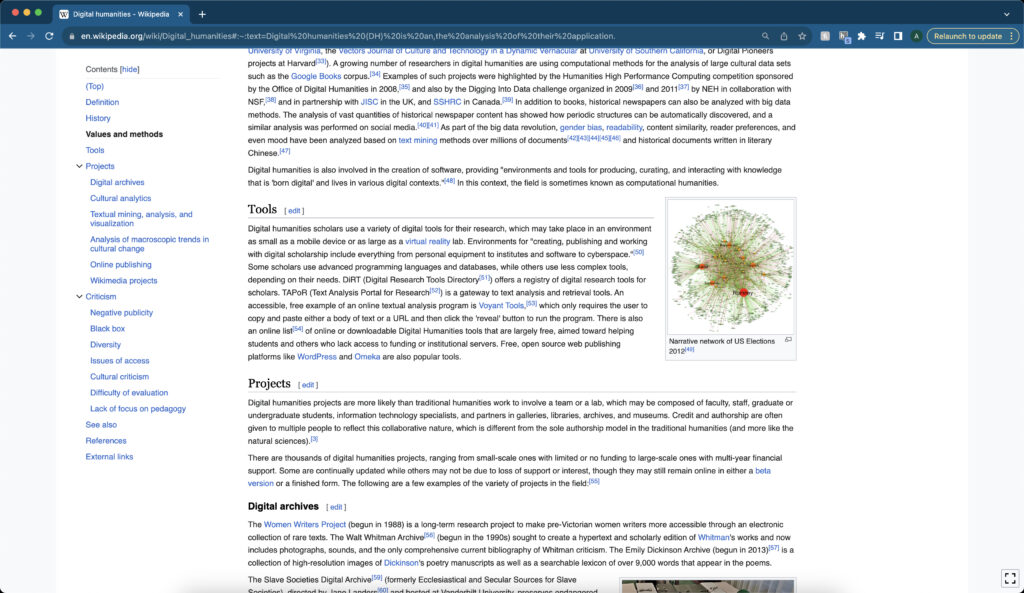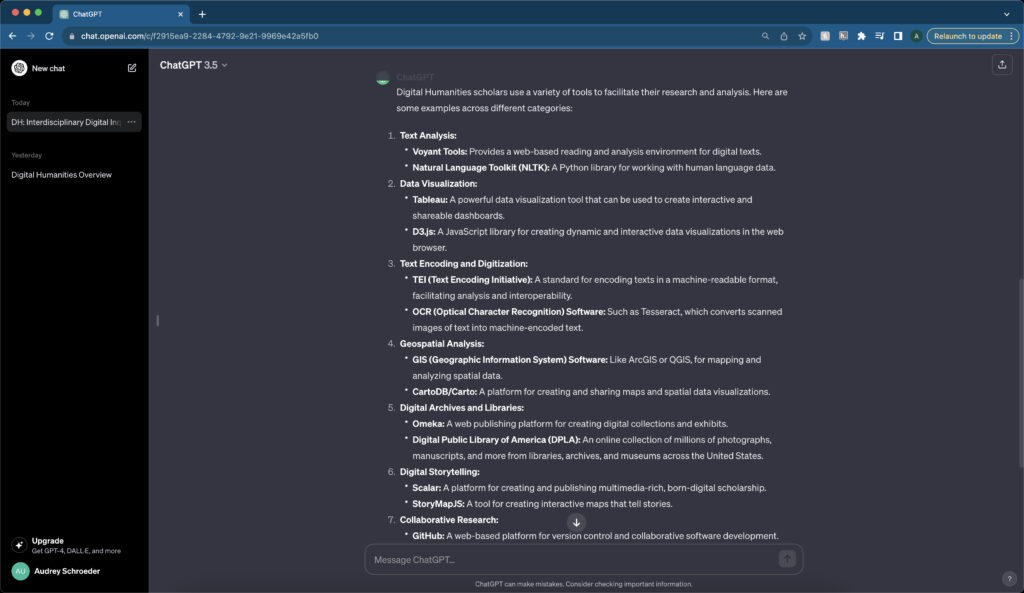Wikipedia has gained a reputation since its inception in 2001. To this day most educational spaces treat the website as taboo, a website filled with errors that users should avoid at all costs. Alexandria Lockett, in her article “Why Do I Have Authority to Edit the Page? The Politics of User Agency and Participation on Wikipedia” (2020), states, “Wikipedia was clearly shaking up the education system back then, and it continues to be taught as a forbidden space. Throughout my undergraduate studies, my peers and I noticed and discussed that our professors were increasingly issuing threats and warnings about using and citing Wikipedia.” (208) Despite those threats, students, and others, continue to use the website for information on various topics. Roy Rosenzweig, in his article, “Can History Be Open Source? Wikipedia and the Future of the Past” (2006), believes this can be a good thing for educational and historical purposes. He states, “One reason professional historians need to pay attention to Wikipedia is because our students do . . . We should not view this prospect with undue alarm. Wikipedia for the most part gets its facts right . . . And the general panic about students’ use of Internet sources is overblown.” (136) As Rosenzweig implies, Wikipedia can be great for beginning research for students and historians—one reason is their Talk and History pages.
The Talk page on a Wikipedia article is a section where users can bring up concerns, potential edits, or any other topics they feel are essential for the article. This section can give users a sense of how the article has changed over time and what different contributors see as the critical issues and concerns of that article. When I looked at the Talk section for the “Digital Humanities,” I noticed that there were different concerns with the organization, particularly with the references and sources.

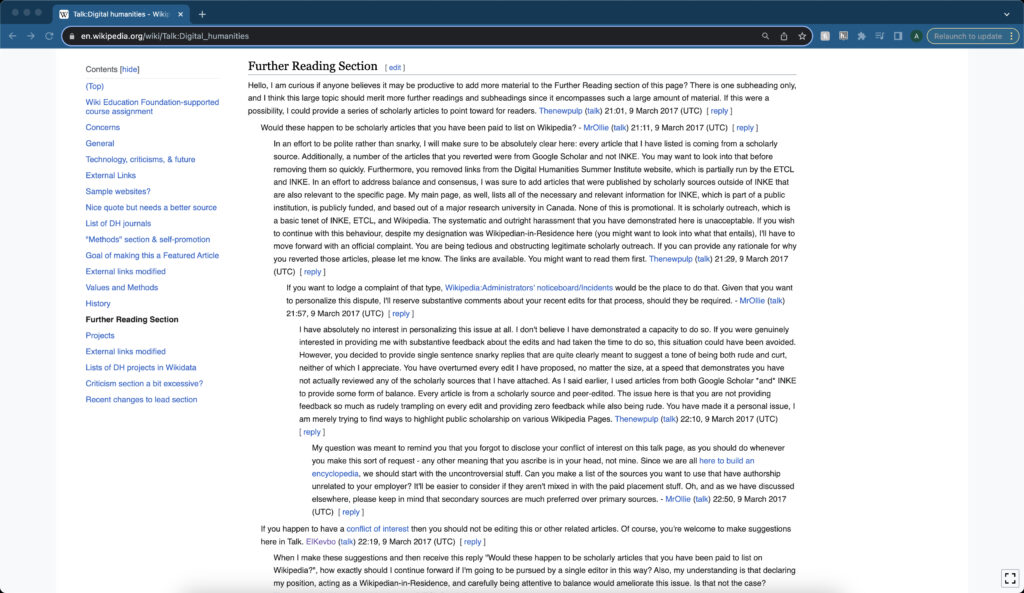
This attention to the sources tells me there is a concern with the contributors about where the information comes from and that the information is most likely accurate. This conclusion lines up when I looked at the History page for the article. The History page for a Wikipedia article gives every single time a revision took place for a particular article. It gives the user who revised the article, the edit size, and when the edit took place
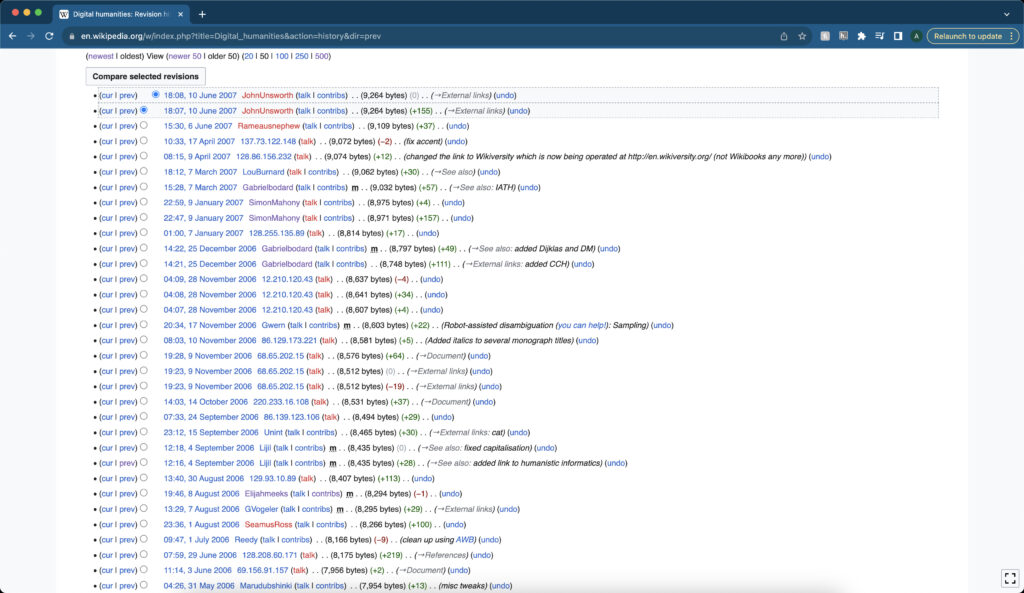
When I looked at the page, I noticed three contributors significantly changed to the article: Elijahmeeks, Gabrielbodard, and SimonMahony. I decided to click on their names to learn more about them, and I found that they were all associated with the Digital Humanities in some capacity. This association lines up with the Talk page and the concerns about sources. People associated with the Digital Humanities field will be concerned about where the information is coming from and if it is accurate which is why it is brought up repeatedly on the Talk page.
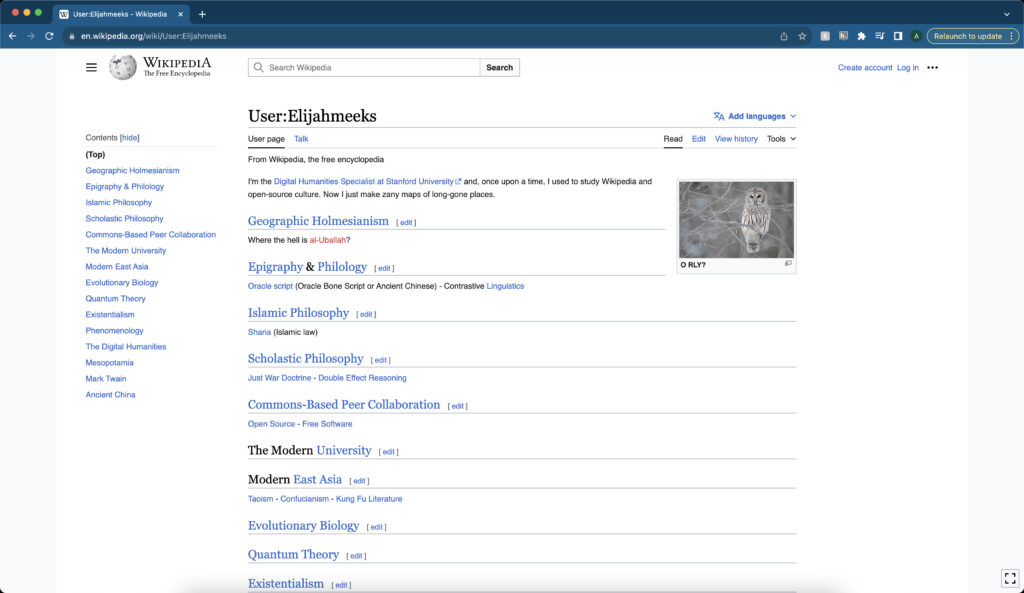
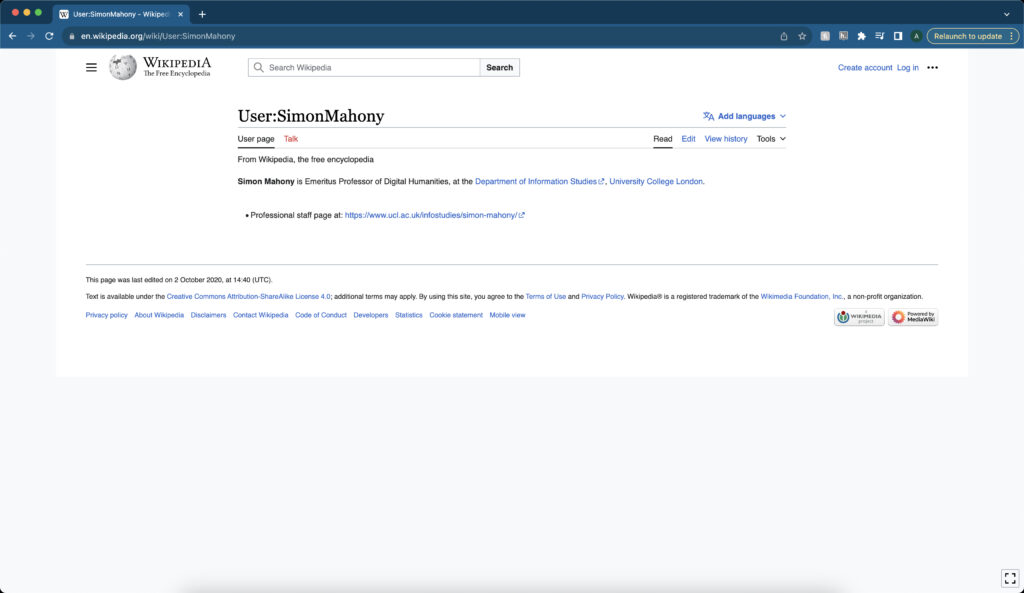
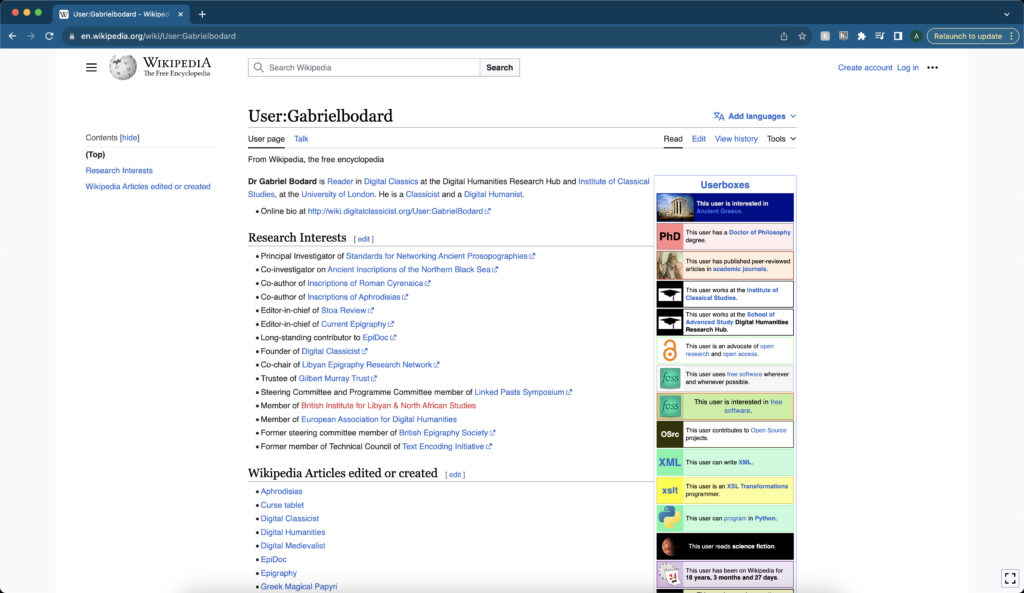
Recently, there have been concerns about using A.I. for crowdsourcing information, especially as a threat to Wikipedia. In his article “Wikipedia’s Moment of Truth” (2023), Jon Gertner states, “On a conference call in March that focused on A.I.’s threats to Wikipedia, as well as the potential benefits, the editors’ hopes contended with anxiety. While some participants seemed confident that generative A.I. tools would soon help expand Wikipedia’s articles and global reach, others worried about whether users would increasingly choose ChatGPT . . . .” (36) There are many reasons why A.I. worries experts when crowdsourcing information. When I was using ChatGPT, I noticed a lack of citations for the information the program answers with. This lack of citations shows how well Wikipedia does with crowdsourcing information since there is an emphasis on citing information. However, there are still possibilities when using A.I. When I was looking at main article for Digital Humanities on Wikipedia I noticed that the Tools section was a little light, only mentioning a few tools. When I asked ChatGPT to give me some examples of different tools, it gave me several compared to the Wikipedia article. I can see a use for ChatGPT and other A.I. programs for crowdsourcing information. Nonetheless, the problems with citations still gives Wikipedia a point in proving accuracy.
